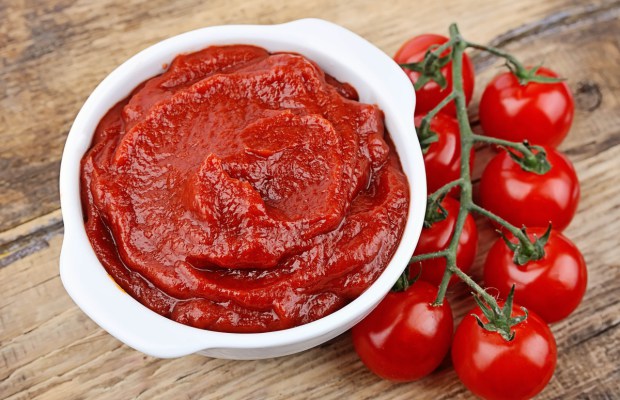With an estimated annual output of 2.4 million tons, Nigeria is the largest producer of tomatoes in sub Saharan Africa, and ranked 13th in the world, but still, foreign brands have dominated the market.
Currently, there are several brands in the Nigerian market. Various indigenous players have also launched their brands although most of them are still battling to break into the local tomato market due to the high number of already present foreign tomato brands.
The emerging battle for supremacy among brands has pitched foreign brands like Gino, St Rita, Vitalis, to mention a few, against local brands such as Tasty Tom, De Rica, and Festin, produced by Olam International, and Ric Giko and Nagiko tomatoes produced by Erisco Foods Limited.
Some others are Sonia Tomato paste produced by Sonia Foods Industries Limited, and Tomato Jos, produced by Tomato Jos Nigeria, which plays in the middle-belt regional market, and has helped heighten competition.
The intense competition has narrowed the lead to just very few brands (Gino, De Rica, Tasty Tom, Sonia, and Ric Giko), while other indigenous brands such as Sonia and Tomato Jos are still struggling to secure their footings in the market. However, in the last few years, Gino has emerged the new king, having wrestled leadership from De Rica which had dominated the market like a colossus for a long time.
According to industry watchers, the manufacturers of De Rica became complacent and its past successes made them too confident and unresponsive to innovations in the market.
Although known for its high quality, the product from Olam Group of companies soon went off the market and by the time it returned, Gino had a strong hold of the tomato paste market.
De Rica later had a re-launch campaign in 2012 on the radio with the slogan, “De Rica don come back.” but Gino’s parent company, the Watanmal Group, seems to have perfected the act of designing the company’s offerings such that it occupies a distinctive place in the heart of its consumers.
The high cost of operating a plant (Power, infrastructure, multiple taxation, etc.) in the country has caused several local manufacturers to close shop, while the foreign brands keep thriving.
In 2016, Nigeria’s biggest tomato paste plant, Erisco Foods Limited, began the process of shutting down its $150 billion plant, resulting in reduced output per production.
This decision was informed by what the company’s CEO, Eric Umeofia, called lack of Government support. Nigeria was at this time embroiled in a serious economic contraction which was caused by poor oil prices, low foreign reserves, and high exchange rates.
Manufacturing companies like Erisco Foods Limited struggled to access foreign exchange. This is despite the Government’s effort to provide forex windows for investors and exporters.

 Football5 days ago
Football5 days ago
 Aviation7 days ago
Aviation7 days ago
 Aviation6 days ago
Aviation6 days ago
 Comments and Issues4 days ago
Comments and Issues4 days ago
 Featured3 days ago
Featured3 days ago
 Business4 days ago
Business4 days ago
 Featured1 week ago
Featured1 week ago
 Education4 days ago
Education4 days ago

